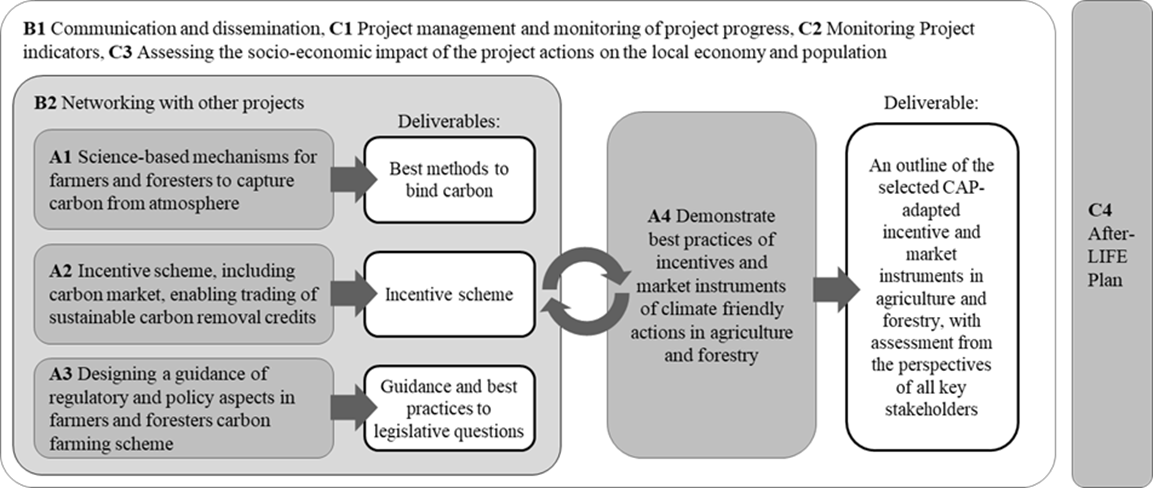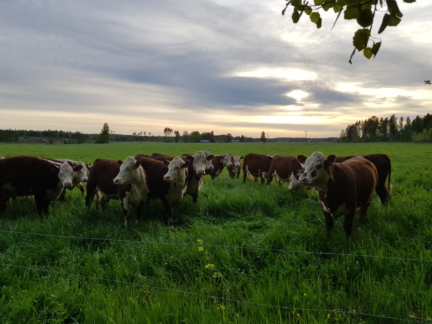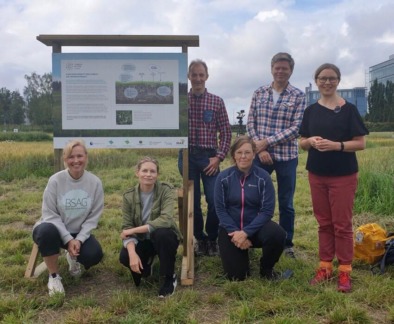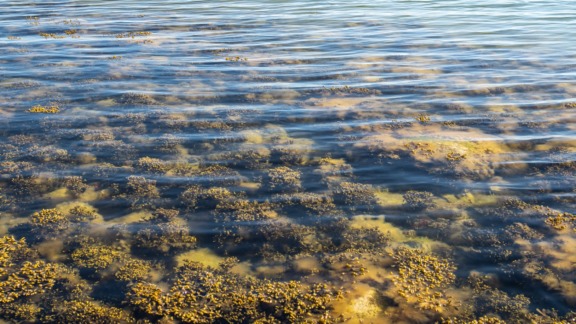LIFE Carbon Farming Scheme
Regenerative Agriculture, Carbon Action
Incentives for carbon sequestration in European agriculture and forestry
Farmers and forest owners can mitigate climate change with their actions. LIFE CarbonFarmingScheme aims to accelerate the development and adoption of novel incentives for carbon sequestration and the increase and maintenance of the organic carbon stock in soil and biomass in Europe.
Official name
LIFE CarbonFarmingScheme
Duration
2020 – 2022
Persons in charge
Jenni Kähkönen, St1 (jenni.kahkonen(a)st1.fi), BSAG: Kaj Granholm, (kaj.granholm@bsag.fi)
Consortium
St1 (lead), Baltic Sea Action Group BSAG, Natural Resources Institute Finland LUKE, North European Oil Trade NEOT, Puro.earth, Tyynelä farm
Funder
LIFE CarbonFarmingScheme project is co-funded from the European Union’s LIFE programme, under the ’Preparatory Project’ portfolio.
New incentives for carbon sequestration methods
Farmers and forest owners have a significant role and potential in mitigating and adapting to climate change globally as well as in Europe. At best, the right measures will also generate multiple co-benefits i.a. in other ecosystem services. Application of such practises to increase soil carbon storage or carbon sinks in forestry can be accelerated, for instance, through agricultural and forest policies or by voluntary carbon credit markets.
The goal of the LIFE CarbonFarmingScheme project is to identify and accelerate the development and adoption of novel incentives for carbon sequestration and the increase and maintenance of the organic carbon stock in soil and biomass in Europe.
State-of-the-art science provides the baseline and backbone for the project in determining the practical methods in farming and forestry which could be included in the incentive schemes and qualify for result-based payment. The project will build and test incentive schemes relying on the available verification methods for carbon stocks in soil and biomass. Further critical considerations are the stability of the stock, carbon leakage and, with particular relevance for marketable carbon credits, additionality – the true increase in the carbon stock compared to business-as-usual. The project also maintains that the measures have to be sustainable also in terms of their overall environmental and socio-economic impacts.
The project will engage practitioners as well as authorities and other competent actors to test and evaluate the proposed incentives as well as their scalability across different pedo-climatic zones in Europe. With the aim of promoting a well-functioning voluntary carbon market complementing the regulated climate actions, the project will uncover the key factors in supply and demand and outline measures to invite the private sector to accelerate climate action.
The results of the project will be fed into the development of the EU agricultural and climate policies.
Work packages and responsible organisations
WPA1 ‘Science base for carbon capture’ (Natural Resources Institute Finland)
WPA2 ‘Trading scheme for sustainable carbon removal credits’ (North European Oil Trade)
WPA3 ’Regulatory and policy aspects of the carbon farming scheme’ (St1)
WPA4 ‘Demonstration and testing of incentive mechanism concepts’ (BSAG, puro.earth)
WPB1 ‘Communication’ (St1)
WPB2 ‘Networking’ (St1)
WPC1 ‘Management’ (St1)
WPC2 ‘Monitoring of indicators’ (St1)
WPC3 ‘Socio-economic impacts’ (St1)
WPC4 ‘After-LIFE’ (St1)

CONTACT

Kaj Granholm
Project Manager, Regenerative Agriculture, EU affairs
PROJECT PARTNERS



